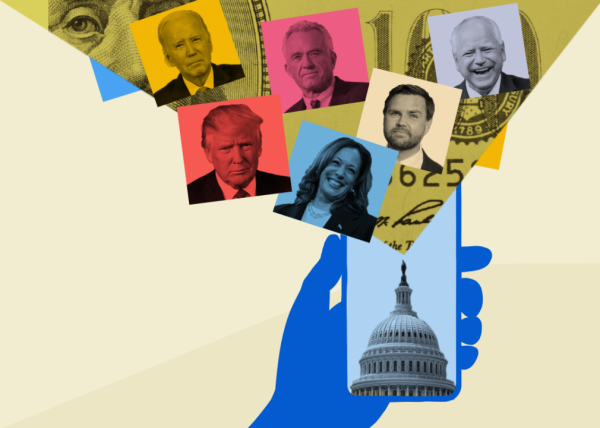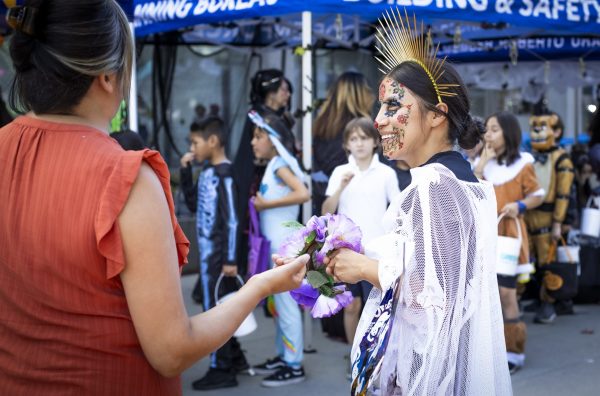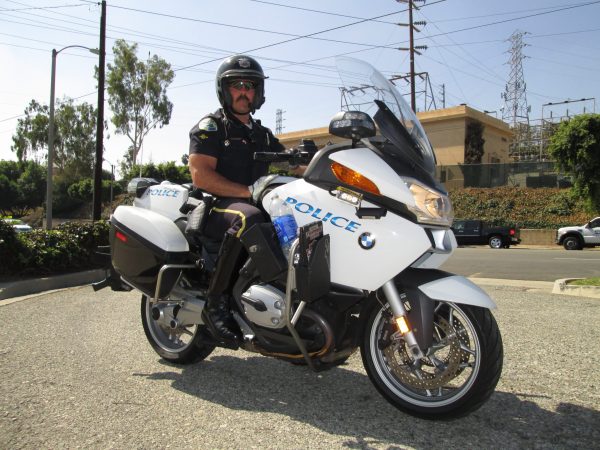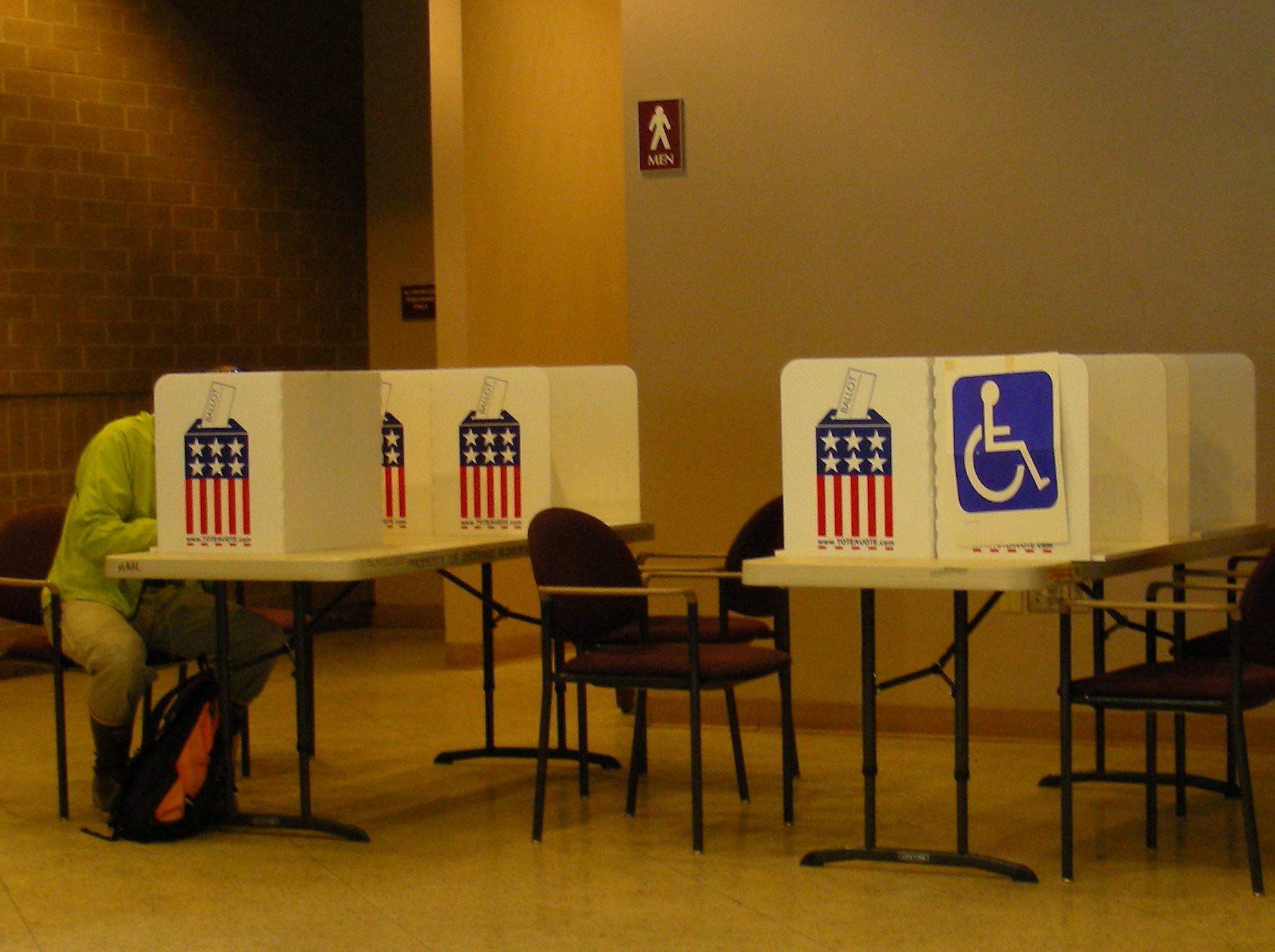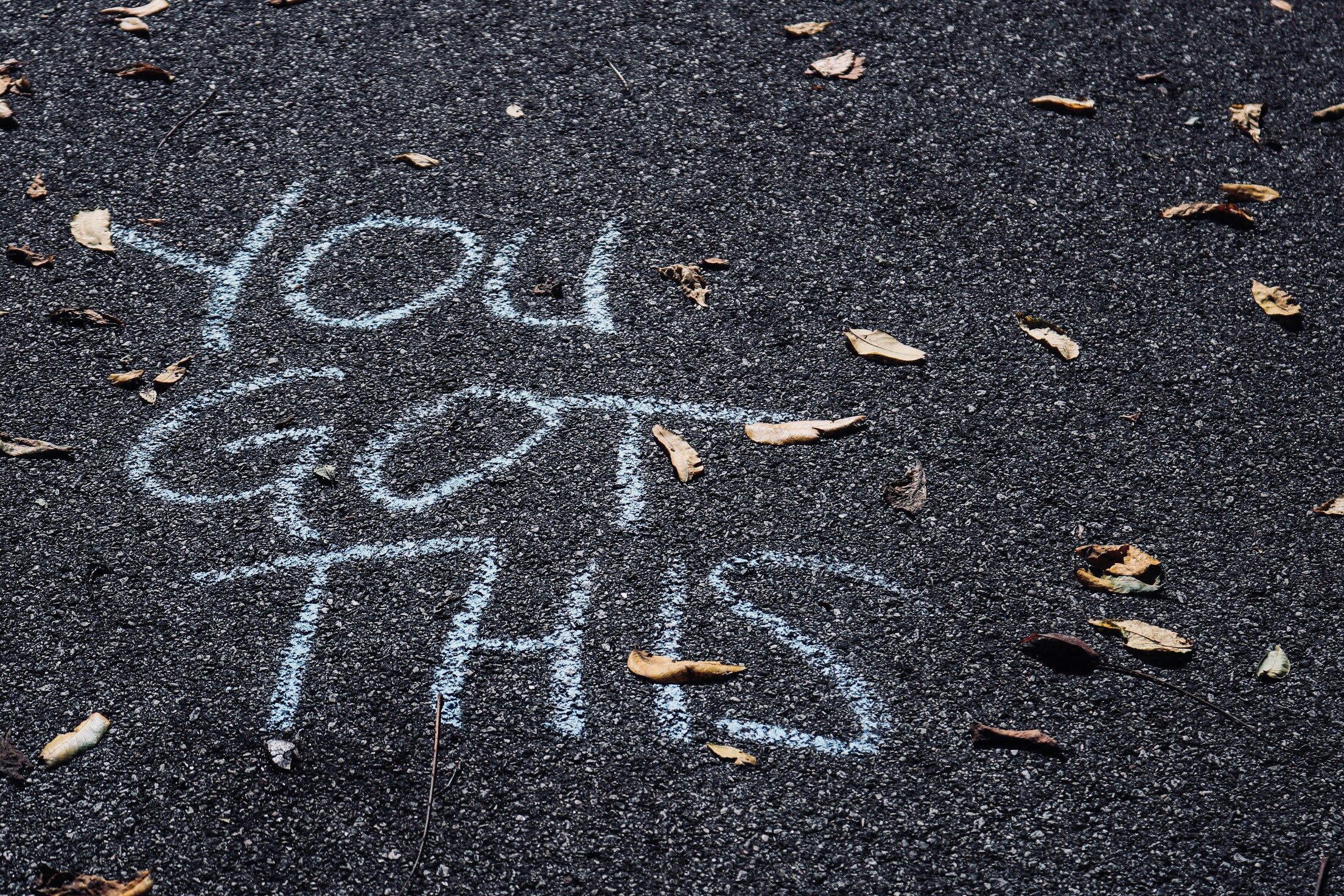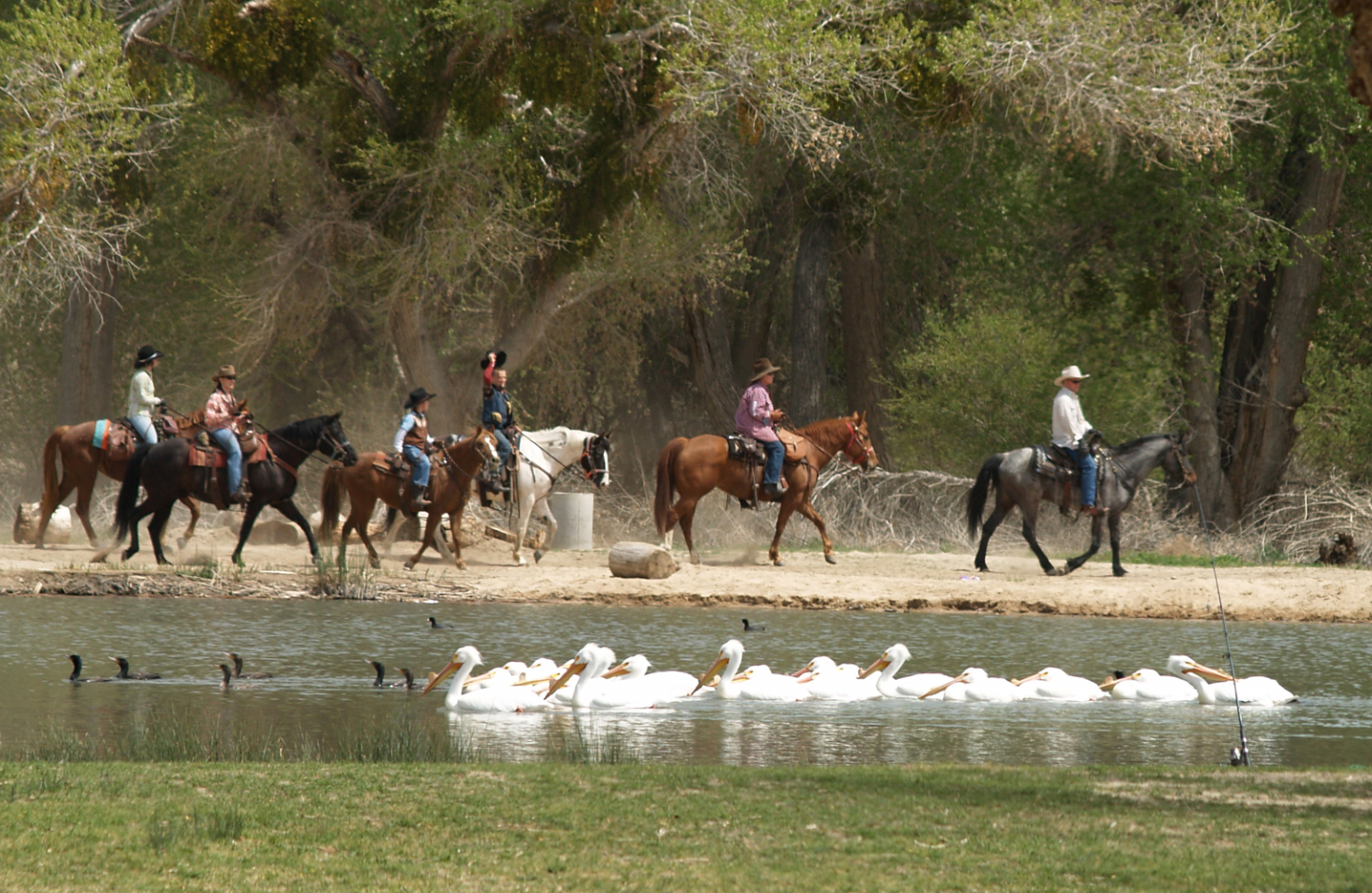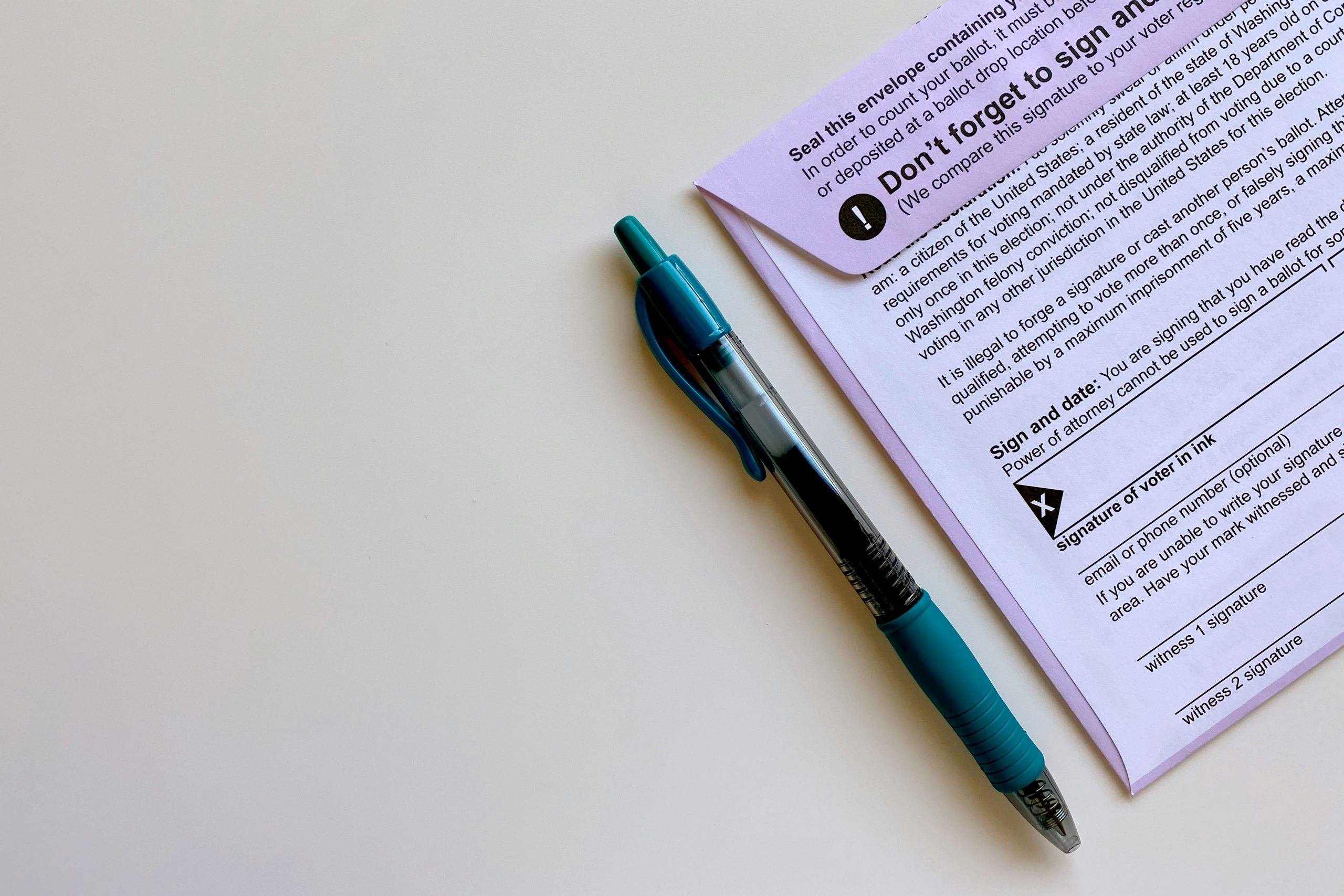Every four years, presidential candidates raise hundreds of millions of dollars that they pour into events, appearances, staffing, TV ads and, increasingly, targeted social media campaigns.
At the end of August, Vice President Kamala Harris had raised $235.5 million and former President Donald Trump had raised $134.6 million, according to public filings with the Federal Election Commission.
What’s more, according to data analyzed by researchers at the Syracuse University Institute for Democracy, Journalism & Citizenship, the Harris campaign outspent the Trump campaign on Meta platforms, including Facebook and Instagram, in the 12 months leading up to September. That’s despite Harris’ late entrance into the race at the end of July.
Collabstr analyzed advertising data from Meta made public by Syracuse University’s IDJC to illustrate how the Republican and Democratic parties and political influencers are spending advertising dollars on Facebook and Instagram ahead of the hotly contested presidential election. Data was collected from Meta in partnership with Neo4j and analyzed by the IDJC. The database includes posting and spending activity for almost the last year, spanning September 2023 through August 2024.
While he was outspent over the period studied, former President Trump also owns his own social media platform, Truth Social, where he pushes his platform to loyal followers. Elon Musk, the current owner of X, formerly known as Twitter, has been one of Trump’s closest allies over the course of this campaign.
Seven of the top 10 Facebook pages with the highest ad spending over the period studied were progressive-leaning pages, according to the IDJC. Two of the top 10 were conservative-leaning pages, and one — for Robert F. Kennedy Jr. — was labeled cross-ideological.
The findings match overall campaign spending trends in FEC data where the Harris campaign is on track to have nearly twice the cash on hand compared to the Trump campaign. Cash on hand represents the money the campaign has in the bank after expenses at any given point in time, as opposed to the total money raised. The 2020 election represented the most expensive election on record for both the presidential race and congressional races. For political parties hoping to pass their agendas, winning more seats in the House and Senate is equally important to gaining the White House.
This year, AdImpact projects $10.2 billion will be spent on political advertising, making it the most expensive cycle of all time. That figure includes not only the presidential and congressional races but also gubernatorial races and down-ballot spending on local elections. While most of that money will be funneled into ads appearing on cable and broadcast television, $1.2 billion is projected to go into digital — ads appearing online and on social media networks.
Over the years, social media has been a powerful tool in boosting election and civic engagement information among younger citizens who have historically not exercised their right to vote. Meanwhile, strategically placed misinformation on social media platforms can also negatively impact turnout and perceptions of candidates.
Read on to see how the pages spending the most on this election cycle are trying to reach and influence users around the country.
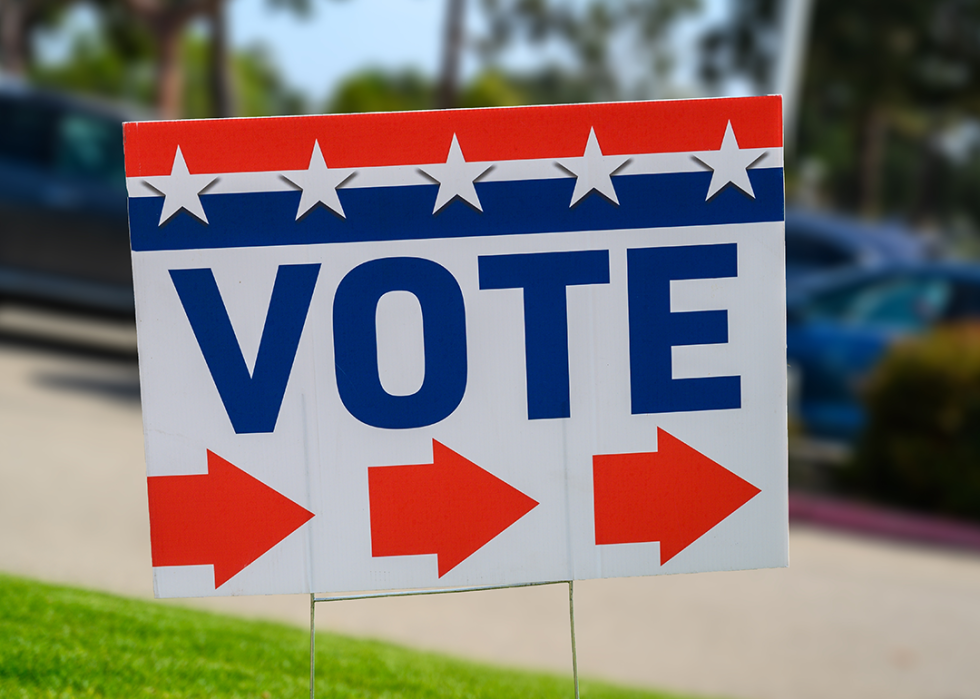
Democratic Governors Association
– Ad impressions: 44,195,696
– Money spent: $1,603,587
Far fewer gubernatorial seats are up for reelection this year — just 14 compared to 36 in the 2022 midterm elections. The DGA has been putting its weight and ad spending behind call-to-action style ads asking users to complete a poll gauging their support for Kamala Harris.
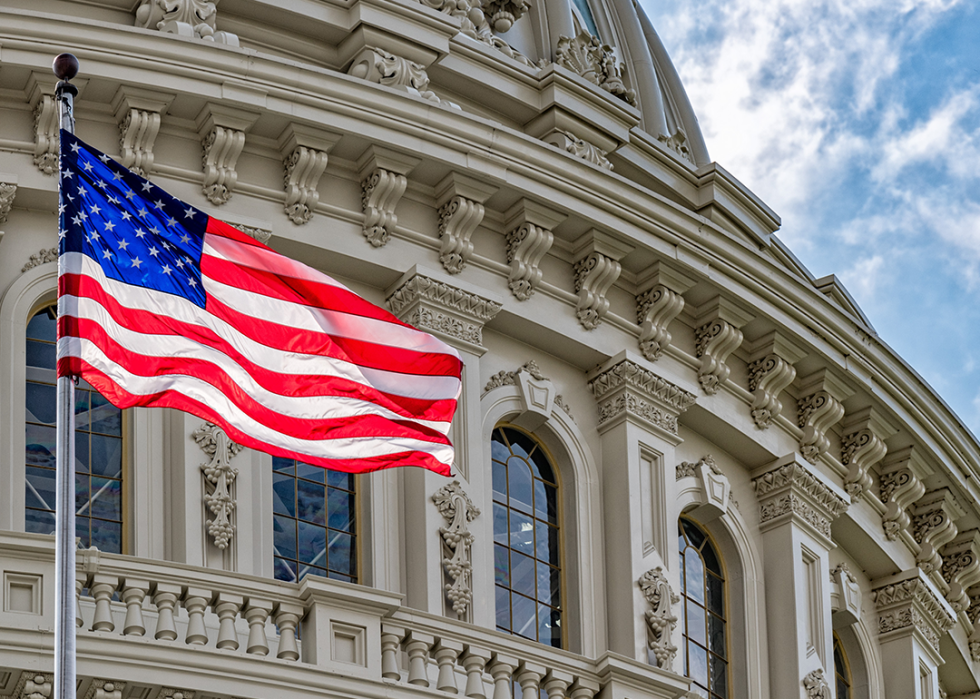
Senate Democrats
– Ad impressions: 56,247,543
– Money spent: $2,134,371
The Senate Democrats page has spent ad dollars on messaging in support of its senatorial candidates. There are 10 state Senate races where the outcome could change which party controls the Senate. Democrats currently control the Senate, but analysts believe their path to holding that control is a difficult one.
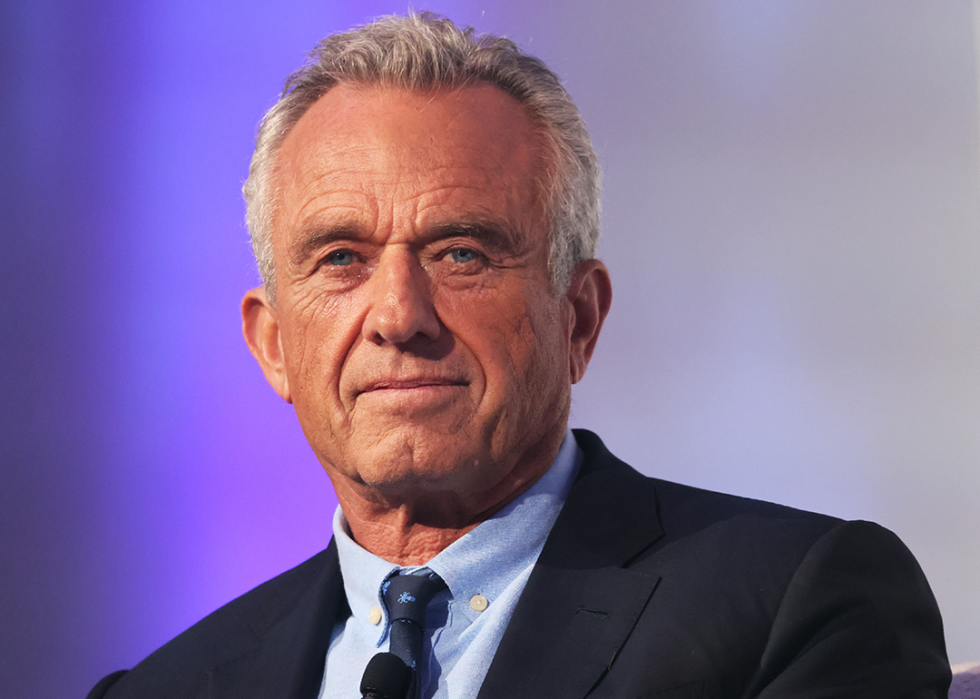
Robert F. Kennedy Jr.
– Ad impressions: 162,350,572
– Money spent: $2,616,686
More than any other issue, ad spending on posts from RFK Jr.’s Facebook page has centered on governance and COVID-19 the most. His page has targeted the 25-44 age group more than others. The former candidate suspended his own presidential campaign in late August and endorsed Trump.
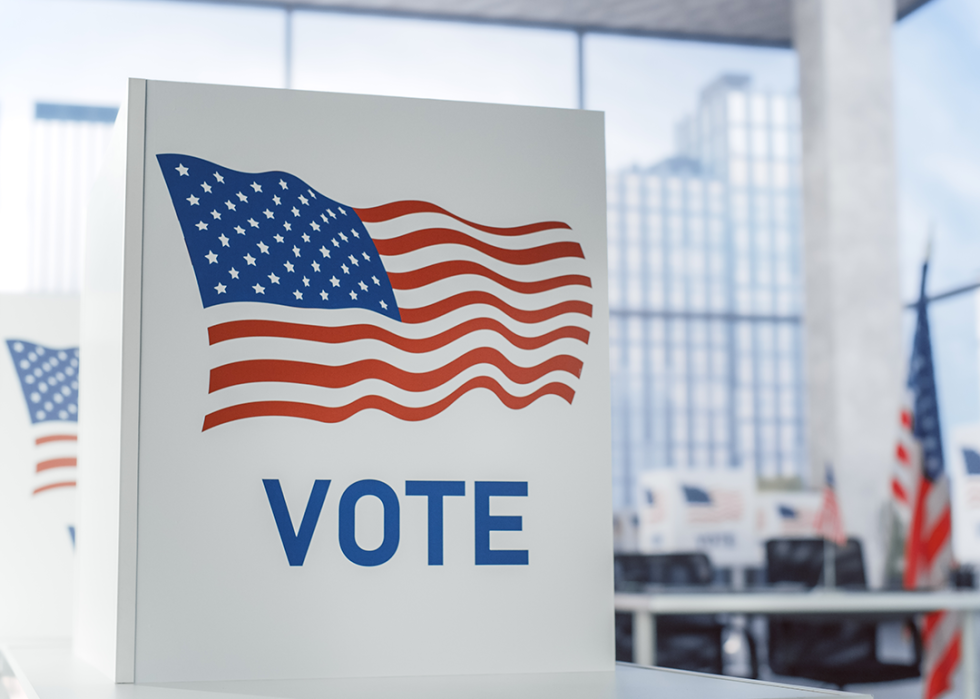
AFP Action
– Ad impressions: 131,170,411
– Money spent: $2,801,633
Americans for Prosperity Action is a libertarian conservative group affiliated with the influential Koch family. The group targeted ads at users in a dozen states, including Arizona, promoting Republican candidates for the House of Representatives.
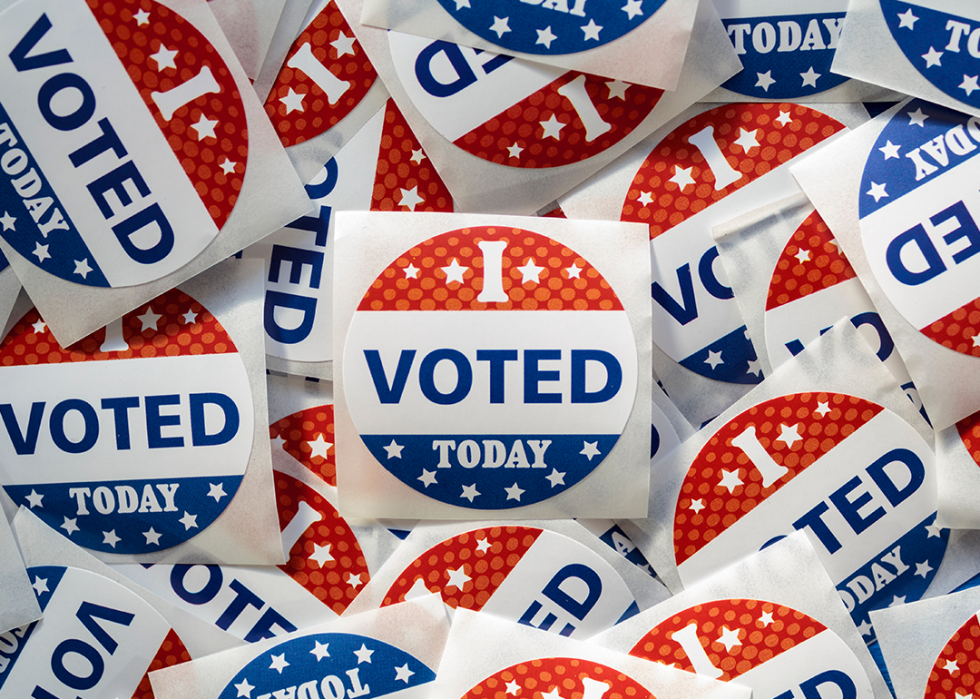
The Daily Scroll
– Ad impressions: 228,232,784
– Money spent: $2,821,356
The Daily Scroll is a page managed by the Harris campaign that shares favorable news articles and puts ad money behind posts, propelling them into users’ feeds that it targets. It’s spent a particularly large amount of its $2.8 million in Pennsylvania and Michigan. It was more likely to target younger demographics and include messaging on women’s issues and social and cultural issues.
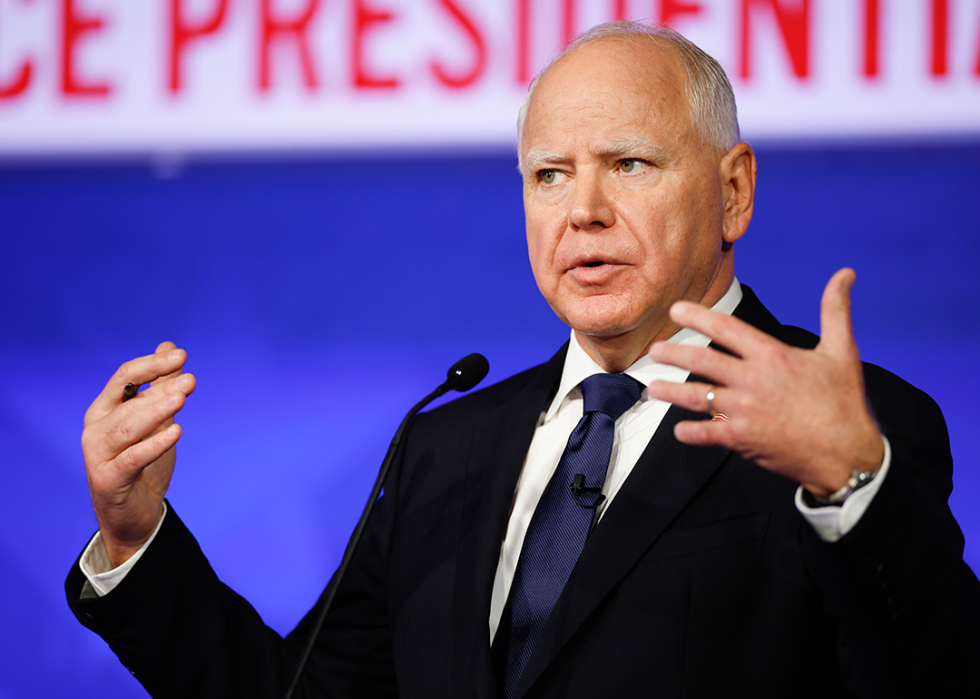
Tim Walz
– Ad impressions: 100,679,136
– Money spent: $2,865,372
Tim Walz, Harris’ candidate for vice president, has put the largest sums of money toward targeting users in the blue states of California and New York. The page run by the governor of Minnesota was inactive for much of the year until August when he joined the Harris ticket. The page then began posting advertisements with calls to donate to the Harris campaign.
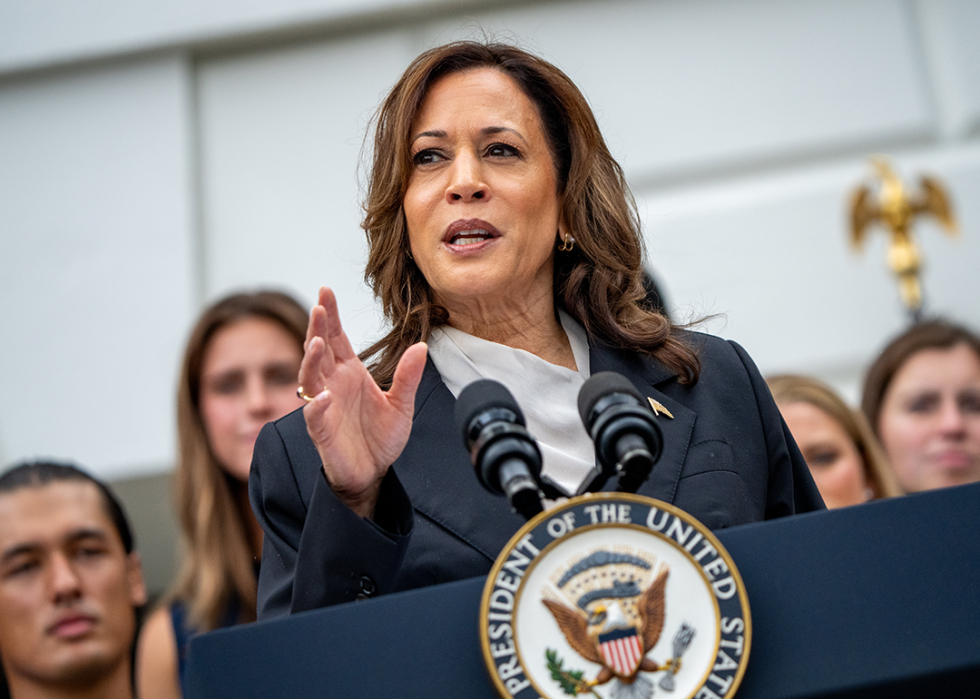
Kamala HQ
– Ad impressions: 173,563,600
– Money spent: $4,901,378
Another page run by the Harris campaign, Kamala HQ, has spent nearly $5 million targeting users mostly over the age of 55. The page has mostly been used to push calls to donate to the Harris campaign.
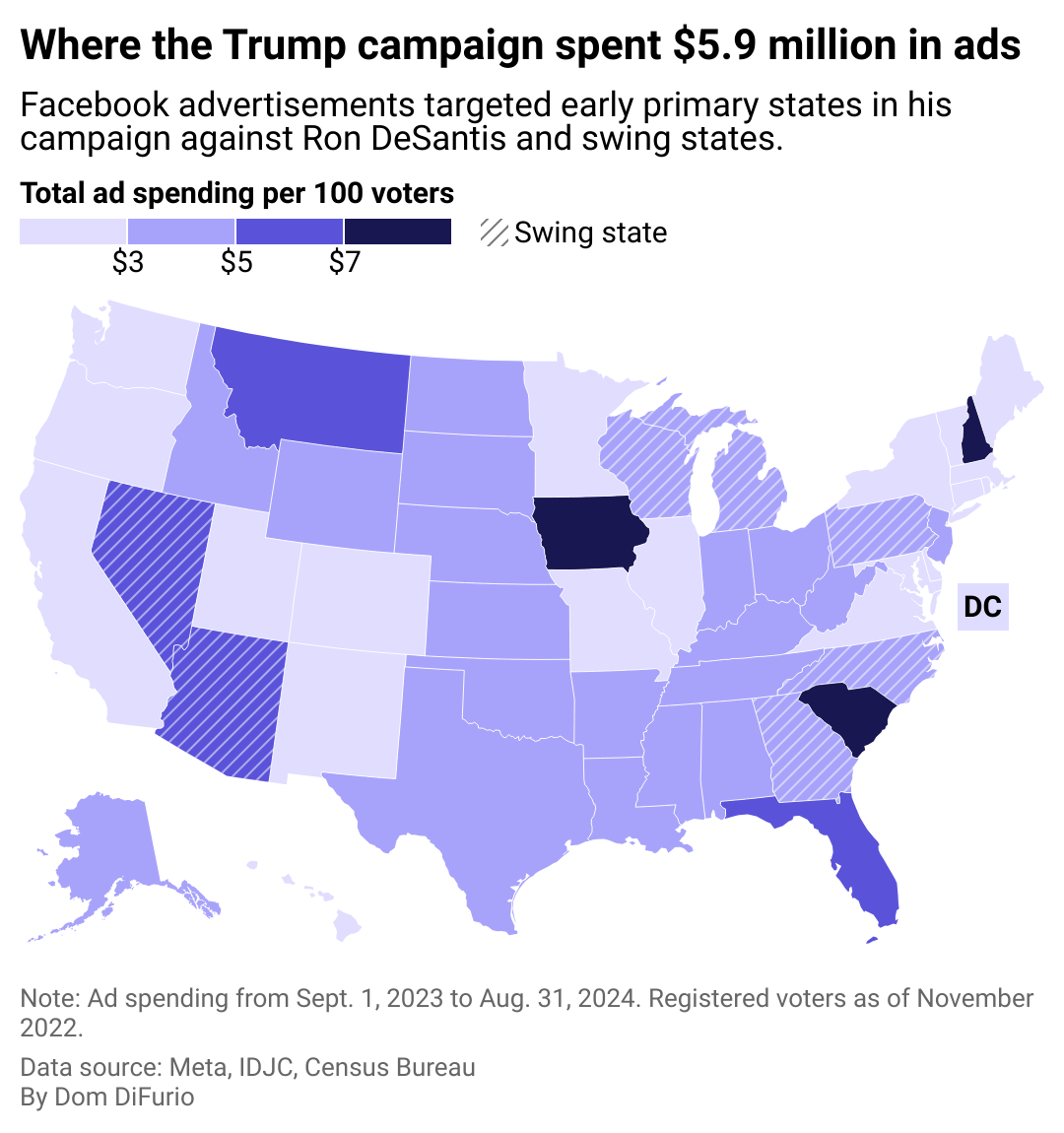
Donald J. Trump
– Ad impressions: 267,212,022
– Money spent: $5,927,170
The Trump campaign spent the most money targeting ads at states including Iowa, South Carolina, and New Hampshire but also directed some spend at battleground states. Candidates generally spend more in battleground states where they can have the most impact persuading voters that could swing the state’s electoral college delegates in their direction. Spending in Iowa and New Hampshire likely was a result of Trump’s fight with Florida Gov. Ron DeSantis in the primary earlier this year, as both were contending to be the GOP nominee for president.
More than half of Trump’s ads were dubbed “uncivil” by the IDJC, meaning that they contained “unnecessarily disrespectful or rude language that is used to either justifiably or unjustifiably attack another person, group, political figure, policy, or institution.”
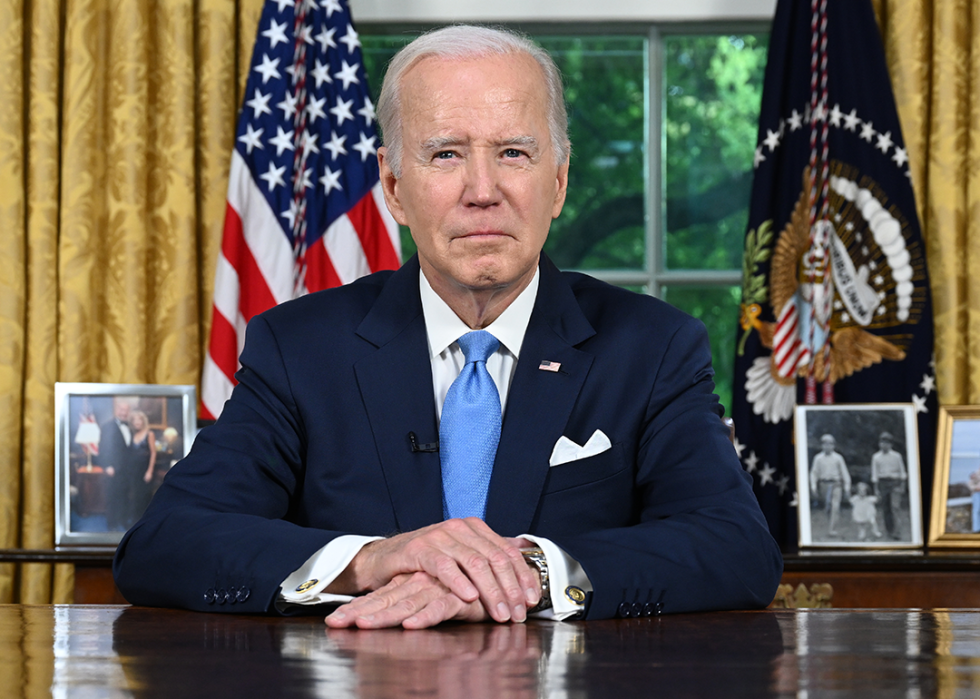
Joe Biden
– Ad impressions: 836,279,587
– Money spent: $26,211,383
Before dropping out, Joe Biden’s official Facebook page is estimated to have spent more than $26 million on targeted ads with Meta. Compared to Trump’s 55% uncivil ad content, Biden’s ads were uncivil just 8% of the time, according to IDJC. Ads from his account focused on the economy, social and cultural issues, and health most heavily.
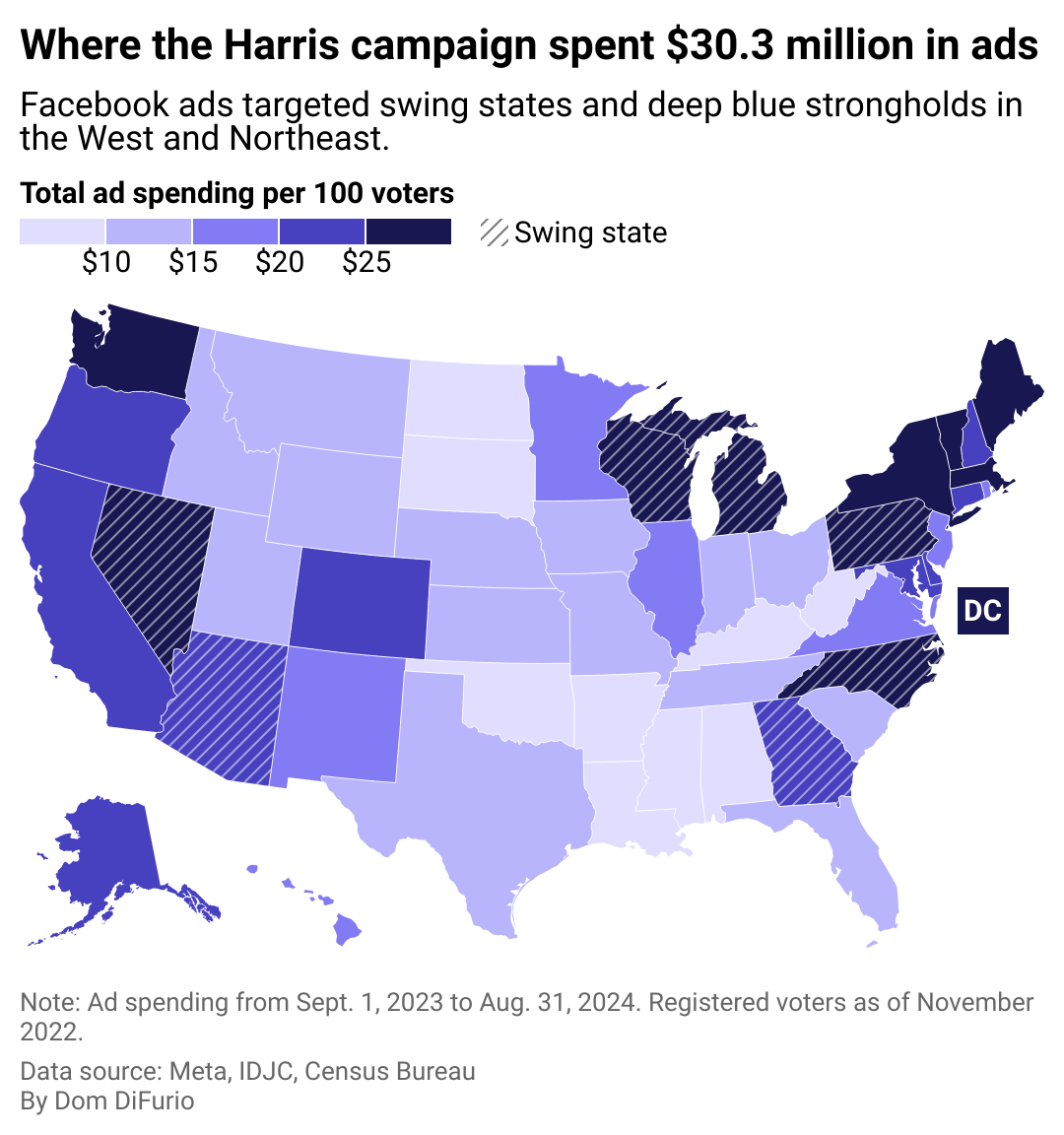
Kamala Harris
– Ad impressions: 832,423,395
– Money spent: $30,276,685
In contrast to Biden, Harris’ page posted uncivil ads 13% of the time. The page targeted women more than men and half of the ad spending targeted users 55 or older. Women’s issues, like reproductive rights, were just 5% of the messaging in ads, while health, the environment and the economy made up nearly half of the issues discussed in ads.
Written by Dom DiFurio. Story editing by Alizah Salario. Additional editing by Kelly Glass. Copy editing by Tim Bruns.
This story originally appeared on Collabstr and was produced and distributed in partnership with Stacker Studio. The article was retitled and copy edited from its original version.
Re-published with CC BY-NC 4.0 License.

